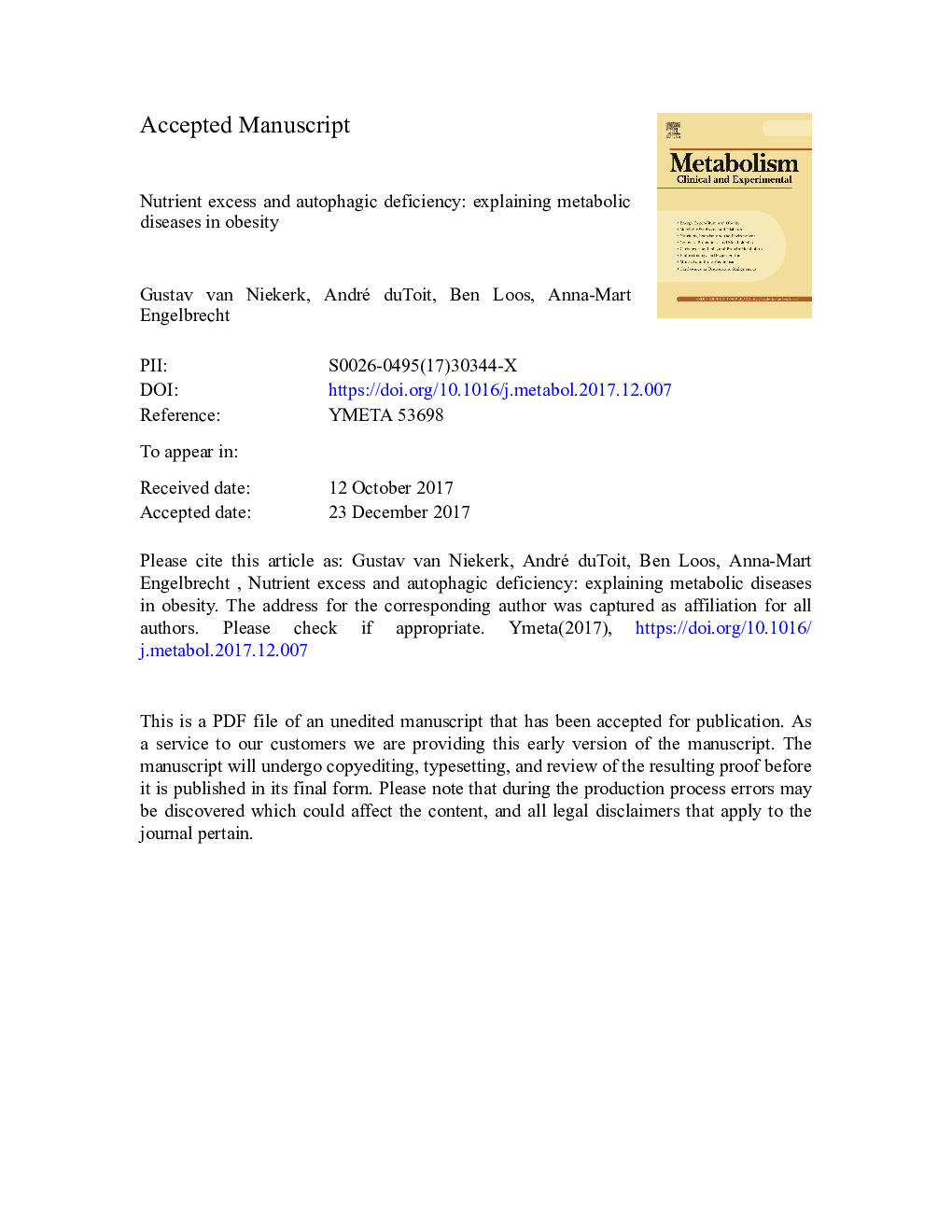| کد مقاله | کد نشریه | سال انتشار | مقاله انگلیسی | نسخه تمام متن |
|---|---|---|---|---|
| 8633008 | 1569027 | 2018 | 22 صفحه PDF | دانلود رایگان |
عنوان انگلیسی مقاله ISI
Nutrient excess and autophagic deficiency: explaining metabolic diseases in obesity
ترجمه فارسی عنوان
کمبود بیش از حد مواد مغذی و کمبود اتولوگ: توضیح بیماریهای متابولیکی در چاقی
دانلود مقاله + سفارش ترجمه
دانلود مقاله ISI انگلیسی
رایگان برای ایرانیان
کلمات کلیدی
موضوعات مرتبط
علوم زیستی و بیوفناوری
بیوشیمی، ژنتیک و زیست شناسی مولکولی
علوم غدد
چکیده انگلیسی
Over-nutrition and a sedentary lifestyle are the driving forces behind the development of metabolic diseases. Conversely, caloric restriction and exercise have proven to be the most effective strategies in combating metabolic diseases. Interestingly, exercise and caloric restriction share a common feature: both represent a potent mechanism for upregulating autophagy. Autophagy is rapidly induced by nutrient deprivation, and conversely, inactivated by amino acids as well as growth factors (e.g. insulin). Here, we review evidence demonstrating that autophagy may indeed be attenuated in metabolic tissue such as liver, muscle, and adipose, in the context of obesity. We also highlight the mechanistic basis by which defective autophagy may contribute to the manifestation of metabolic diseases. This includes a compromised ability of the cell to perform quality control on the mitochondrial matrix, since autophagy plays a pivotal role in the degradation of defective mitochondria. Similarly, autophagy also plays an indispensable role in the clearance of protein aggregates and redundant large protein platforms such as inflammasomes. Autophagy might also play a key role in the metabolism of endotoxins, implicating the importance of autophagy in the pathogenesis of metabolic endotoxemia. These observations underpin an unprecedented role of autophagy in the manifestation of obesity-induced metabolic derangement.
ناشر
Database: Elsevier - ScienceDirect (ساینس دایرکت)
Journal: Metabolism - Volume 82, May 2018, Pages 14-21
Journal: Metabolism - Volume 82, May 2018, Pages 14-21
نویسندگان
Gustav van Niekerk, André du Toit, Ben Loos, Anna-Mart Engelbrecht,
